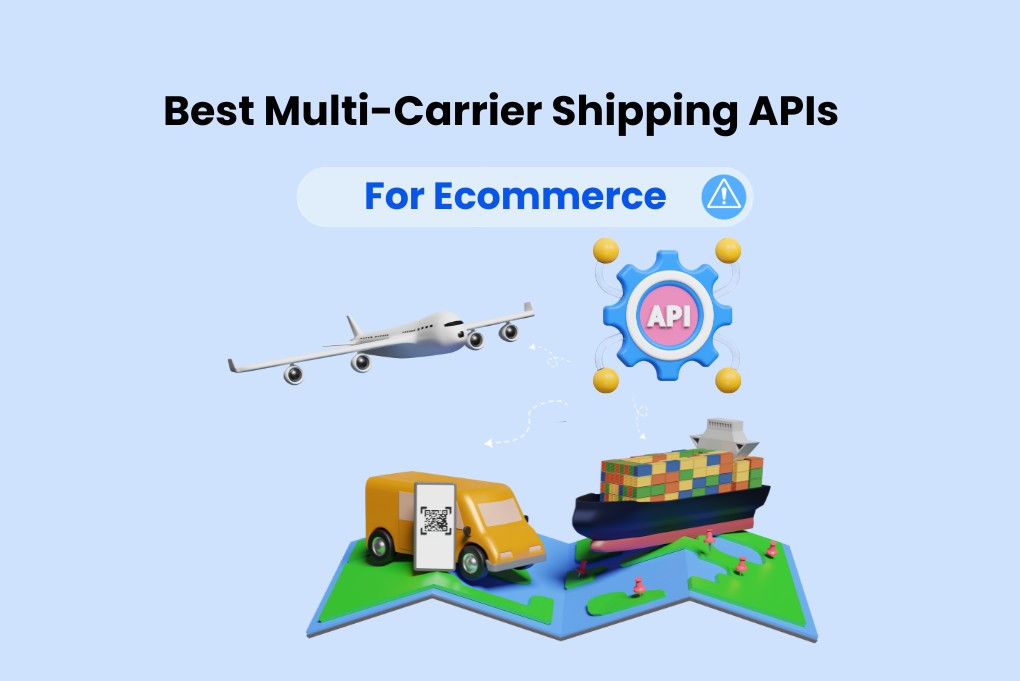
In the world of eCommerce and online shopping, success depends on various factors, with shipping efficiency topping the list. E-commerce businesses, in particular, recognize the pivotal role of providing customers with a seamless and perfect delivery experience.
In this article, we’ll introduce the best multi-carrier shipping APIs in-depth, while stressing the need to make informed decisions, and closely examining the vast world of e-commerce shipping.
Definition of Multi-Carrier Shipping APIs
Multi-carrier shipping APIs are the technological backbone that enables users to effortlessly interact with and use the services of several shipping carriers in the world of e-commerce.
These APIs serve as enablers, enabling effective shipping process management, real-time tracking, and cost optimisation. They are essentially the unseen facilitators who simplify shipment and make it a more customer-focused, efficient process.
With the correct API, the shipping process can be improved overall, guaranteeing prompt deliveries, clear pricing, and happy customers in the end. On the other hand, making a bad shipping decision could lead to problems with logistics, more expenses, and a damaged reputation for the brand.
Overview of the Growing E-commerce Shipping Landscape
E-commerce shipping has evolved from being a mere logistical necessity to a strategic component of the customer experience. The landscape is evolving rapidly, driven by the increasing expectations of consumers for faster, more reliable shipping options.
For eCommerce merchants, staying ahead requires a keen understanding of the trends, technologies, and tools available to navigate this ever-expanding terrain.
Selecting a Multi-Carrier Shipping API
When choosing a multi-carrier shipping API, it’s essential to consider a few important factors. Let’s break them down:
1. Smooth Integration and Compatibility
The first step is integration, and it’s crucial to assess how seamlessly the multi-carrier shipping API can integrate with your specific eCommerce platform. The smoother the integration, the better the overall experience.
2. Platform Compatibility
Online shopping platforms vary in their designs and functionalities, and each one has its own distinctive features and specific needs. A good multi-carrier shipping API should exhibit versatility by seamlessly integrating with popular platforms like Shopify, WooCommerce, Magento, and others. This adaptability ensures that businesses of all scales can leverage the API without encountering compatibility issues.
3. Multi-Carrier Support
One of the distinguishing factors of an excellent multi-carrier shipping API is its ability to support a diverse range of carriers. A good API provides access to a multitude of carriers, allowing businesses to choose the ones that align with their specific shipping needs. This flexibility ensures that businesses are not confined to a single carrier and can optimize shipping based on cost, speed, and reliability.
4. Transparent Shipping Rates
Transparent shipping rates are a cornerstone of customer trust. An effective multi-carrier shipping API provides clarity in shipping costs, ensuring that customers are presented with accurate and upfront shipping charges during the checkout process. Transparency in rates prevents unpleasant surprises for customers and fosters trust in the e-commerce brand.
5. Cost Optimization Features
Beyond transparent rates, a good multi-carrier shipping API should equip merchants with tools for cost optimization. This could include rate comparison features, bulk shipping, and algorithms that optimize routes. Cost optimization features transform the API from a tool to a strategic asset in managing the bottom line.
6. Real-time Tracking and Visibility
Beyond transparent rates, an API should offer features that enable businesses to optimize shipping costs. This may include rate comparison tools, bulk shipping discounts, and route optimization algorithms. Cost optimization features empower businesses to make informed decisions to stay within their budgetary constraints while maintaining the efficiency of their shipping processes.
7. Features for Enhanced Shipment Visibility
Real-time tracking, when coupled with enhanced visibility features, elevates the shipping experience. Imagine customers receiving notifications at key shipping milestones or having access to interactive tracking maps. Enhanced visibility features position the merchant as not just a seller but a trusted guide throughout the shipping journey.
Top Multi-Carrier Shipping APIs
ReachShip API
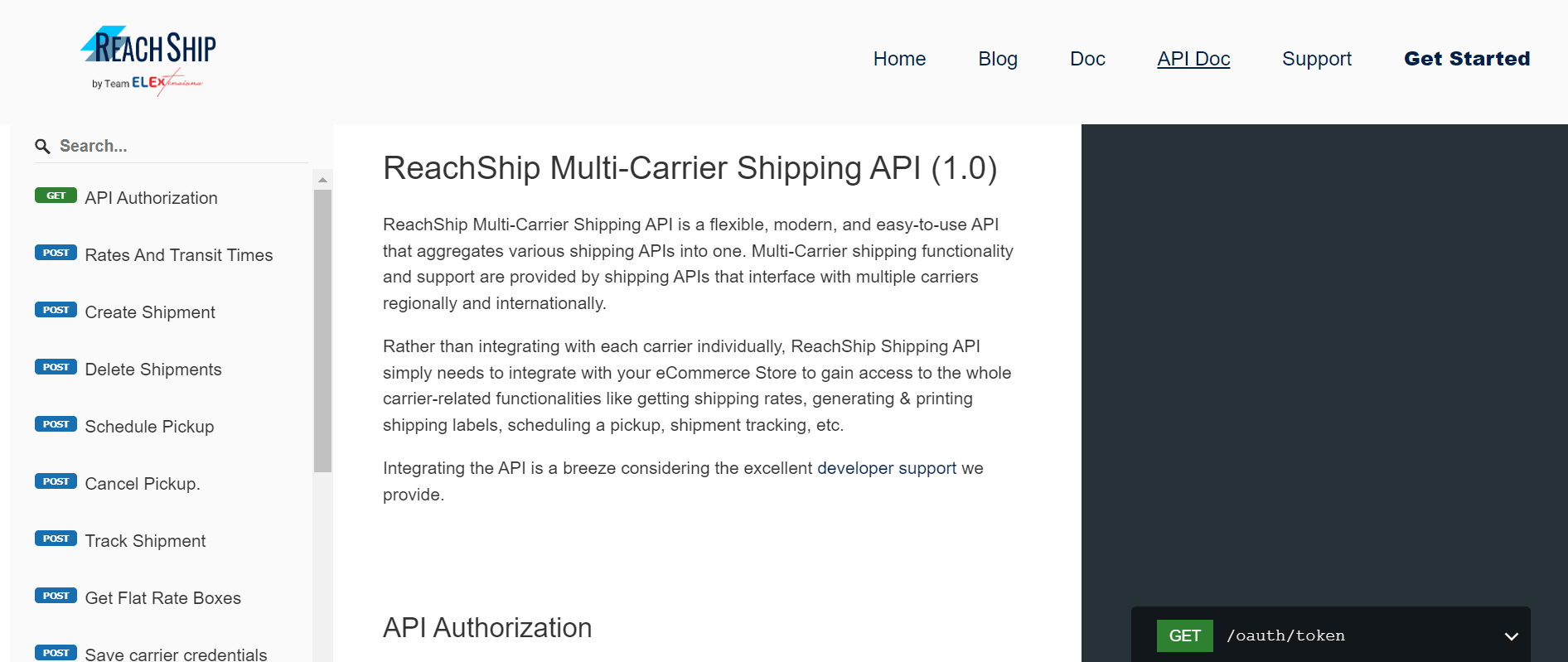
ReachShip API is a comprehensive multi-carrier shipping solution designed to streamline and optimize the shipping processes for e-commerce businesses. It seamlessly integrates with WooCommerce, providing merchants with a versatile and user-friendly tool for managing their shipping operations.
Features:
- Extensive Carrier Support: The API offers support for a diverse range of carriers, including Australia Post – MyPost Business, DHL, and more, providing flexibility for merchants to choose carriers based on cost, speed, and other criteria.
- Transparent Shipping Rates: Clear and upfront shipping rates are a hallmark of ReachShip API, promoting transparency in the checkout process and building trust with customers.
- Print Shipping Labels from WooCommerce Order Admin Page: Conveniently print shipping labels directly from the ReachShip order tab in WooCommerce.
- Label Generation & Automation: Streamline the entire label generation process for a more efficient workflow.
- Live Shipment Tracking: Offer real-time tracking information, keeping customers informed about order status.
- International Shipping Support: The API supports international shipping, making it a suitable choice for businesses expanding their reach across borders.
- Bulk Shipment Creation, Pickup Scheduling, & More: Efficiently manage orders and packages with powerful bulk actions.
Many eCommerce merchants have embraced the ReachShip API, experiencing improved operational efficiency, cost savings, and positive customer feedback. The API’s reliability and adaptability have become cornerstones for success.
EasyPost API
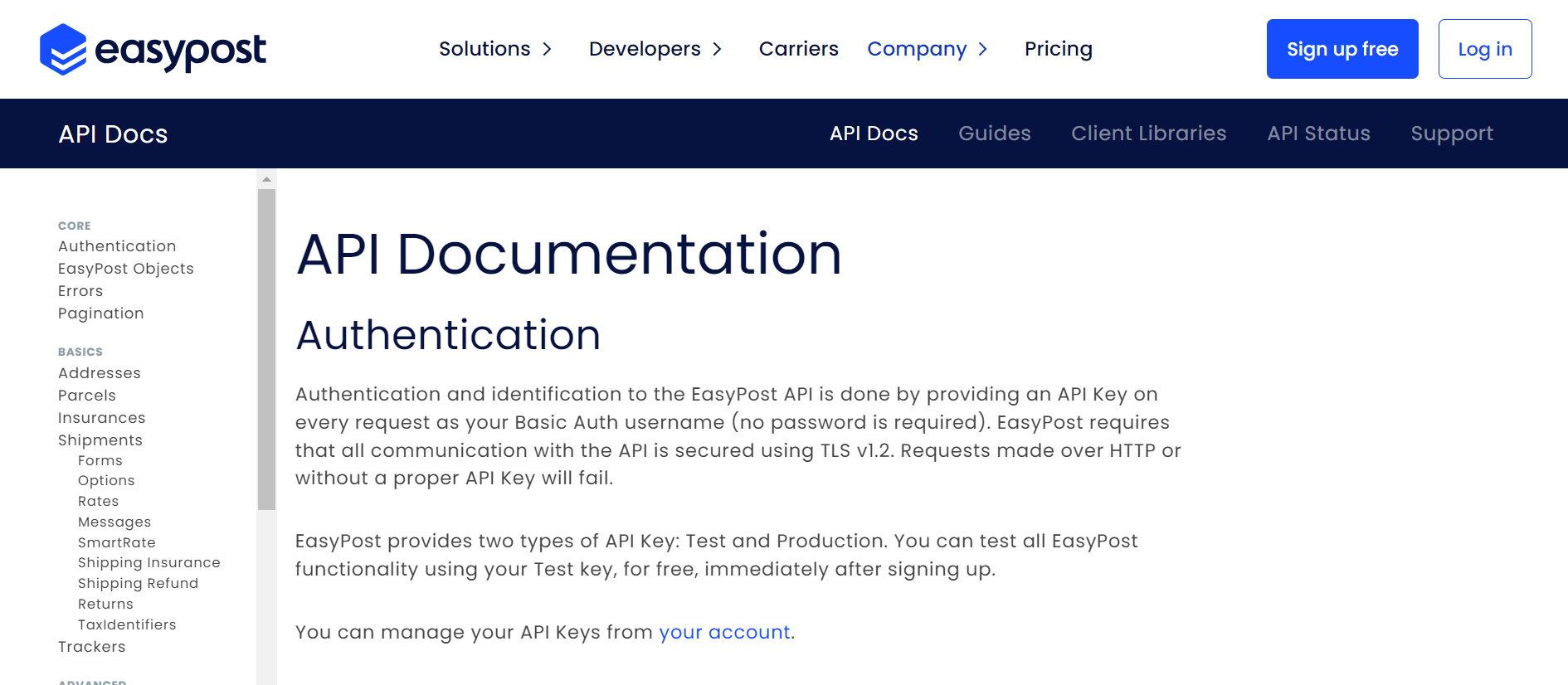
EasyPost API is a user-friendly multi-carrier shipping solution that focuses on simplifying the integration process and providing access to an extensive carrier network. With a commitment to ease of use, EasyPost caters to e-commerce businesses looking for a straightforward and efficient shipping API.
Features:
- User-Friendly Integration: EasyPost API is designed with a user-friendly integration process, making it accessible for developers and minimizing the learning curve.
- Extensive Carrier Network: Merchants can tap into a wide array of carriers through the EasyPost API, offering flexibility and choice for their shipping needs.
- Address Verification: The API includes address verification features to ensure accuracy in shipping addresses, reducing the likelihood of delivery issues.
- Rate Comparison Tools: Merchants can leverage rate comparison tools within the API, enabling them to make informed decisions and optimize shipping costs.
Businesses using EasyPost have lauded its ease of use, reliability, and tangible benefits in user testimonials. Positive reviews often highlight the impact on operational efficiency and cost-effectiveness.
Stamps.com API
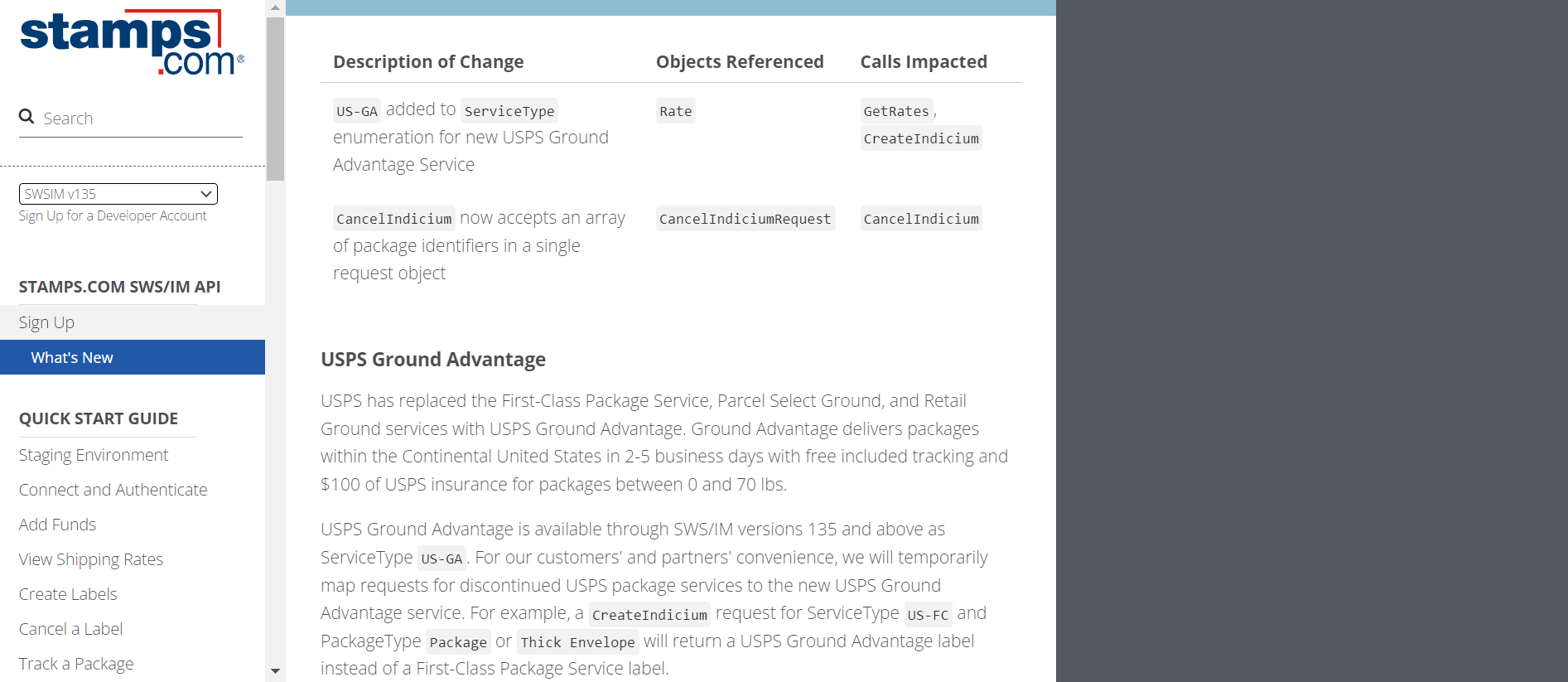
Stamps.com API is a powerful shipping solution that provides a wide range of must-have features to help e-commerce businesses streamline the shipping process. With a focus on label generation, rate quoting, and international shipping support, Stamps.com caters to businesses with diverse shipping needs
Features:
- Label Generation: Stamps.com API facilitates seamless creation of shipping labels for orders, streamlining the shipping process for merchants.
- Rate Quoting: Accurate and real-time rate quotes are provided by the API, ensuring transparency in shipping costs for both merchants and customers.
- International Shipping Support: The API supports international shipping, making it a suitable choice for businesses expanding their reach across borders.
- Batch Shipping: Merchants can benefit from batch shipping features, allowing them to process multiple orders simultaneously, improving operational efficiency.
Stamps.com can boast exclusive offerings or innovations, catering to specific needs within the e-commerce landscape. These could range from partnerships with carriers to proprietary technologies that enhance the shipping process.
Future Trends in Multi-Carrier Shipping
The world of multi-carrier shipping is always changing, driven by technological progress, shifting consumer demands, and an increased focus on sustainability. The future of multi-carrier shipping APIs is not just about efficiency; it’s about a holistic approach to customer experience and sustainability.
For eCommerce businesses, the journey forward involves embracing innovative APIs, staying updated with emerging trends, and always placing the customer at the center of the shipping needs.
As e-commerce continues to transform, the role of multi-carrier shipping APIs will also evolve, influencing the future of online retail. Let’s explore some upcoming trends in multi-carrier shipping that are likely to shape the industry, starting with the introduction to the impact of AI and machine learning.
Impact of AI and Machine Learning
AI and machine learning are set to play a significant role in the future of multi-carrier shipping APIs. These technologies bring a new level of intelligence and efficiency, enhancing various aspects of the shipping process.
These technologies hold the potential to revolutionize logistics by analyzing historical shipping data, predicting patterns, and optimizing routes. For eCommerce merchants, this means not just efficient shipping but predictive and proactive solutions.
Sustainability in E-commerce Shipping
As environmental consciousness grows worldwide, so does the demand for sustainable shipping solutions. Future multi-carrier shipping APIs may incorporate features that allow eCommerce merchants to choose eco-friendly shipping options and offset carbon emissions, contributing to a greener supply chain.
Wrapping Up
The top Multi-Carrier Shipping APIs serve as beacons of light, pointing businesses in the direction of success in the wide and ever-changing world of e-commerce. APIs enable businesses to confidently navigate the constantly shifting e-commerce landscape by not just meeting current needs but also looking ahead.
As the industry evolves, these APIs stand as trustworthy navigators, guiding businesses toward greater efficiency, customer satisfaction, and success in the competitive e-commerce industry.
Selecting the best multi-carrier shipping API for your e-commerce business involves considering factors such as the scale of your business processes, the range of carriers supported, and the specific features that align with your workflow.
Maintaining a competitive edge with effective shipping options can be transformative as the e-commerce market develops. Explore the options, test the functionalities, and pave the way for a streamlined and reliable shipping experience for your customers.
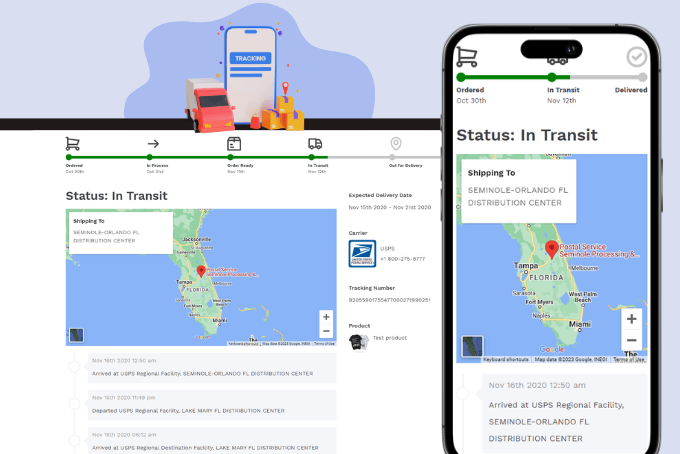






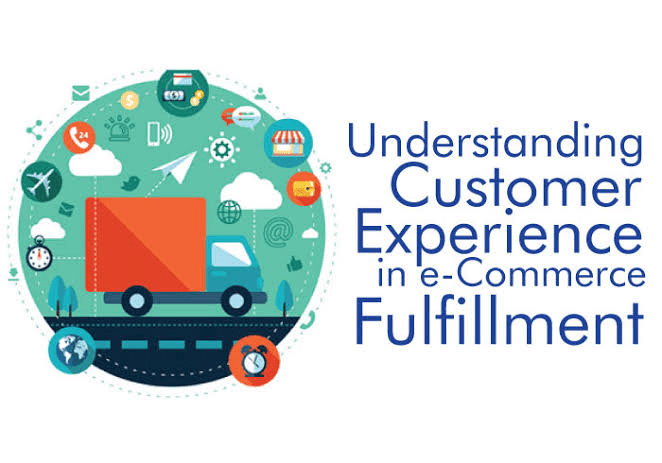


![Top 10 Loop Returns Alternatives and Competitors [2025]](https://images.surferseo.art/355d37b8-6936-4be4-b677-f5314b151724.png)
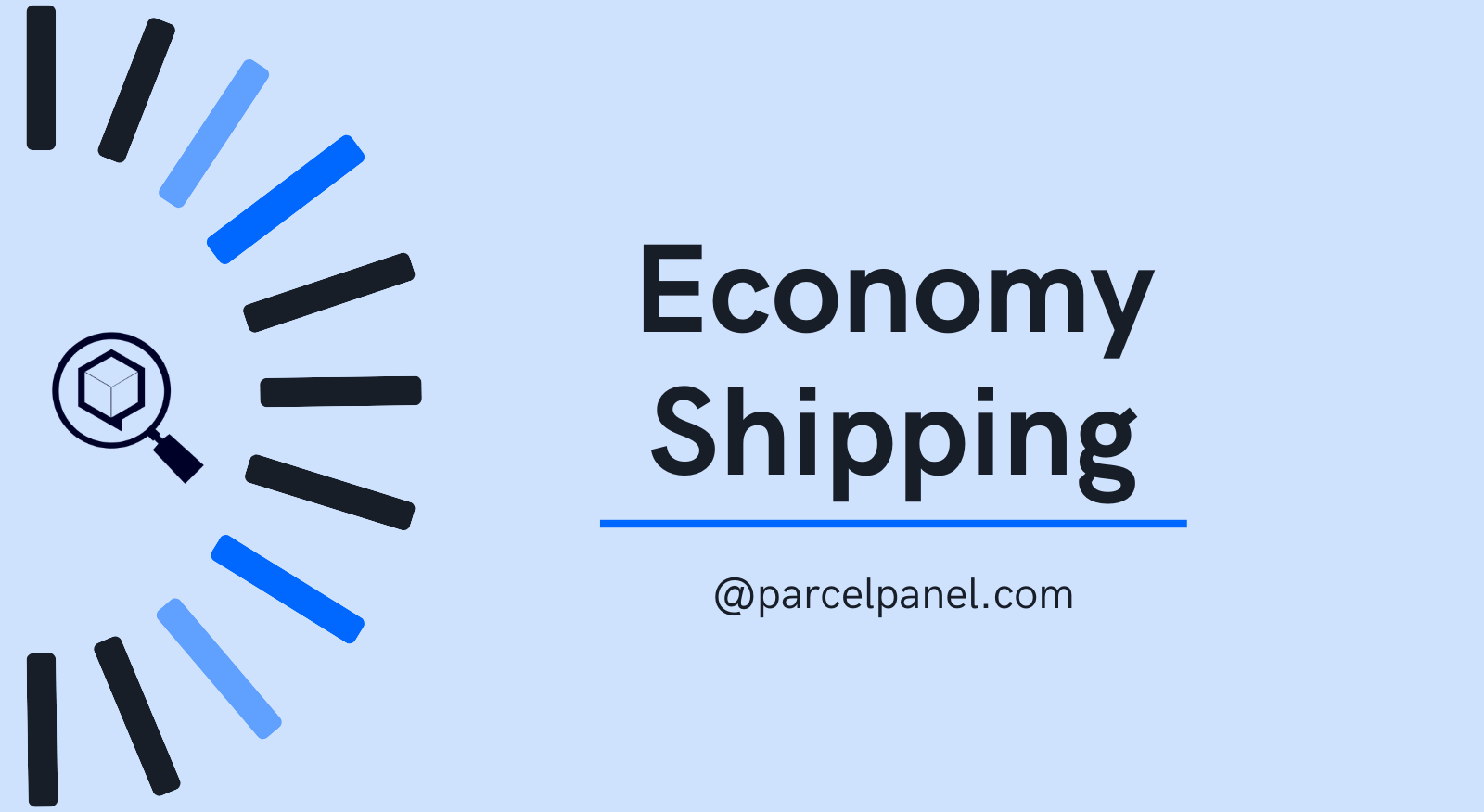
![Top 10 AfterShip Alternatives and Competitors [2025]](https://www.parcelpanel.com/blog/wp-content/uploads/2025/03/20250325102130525.png)














